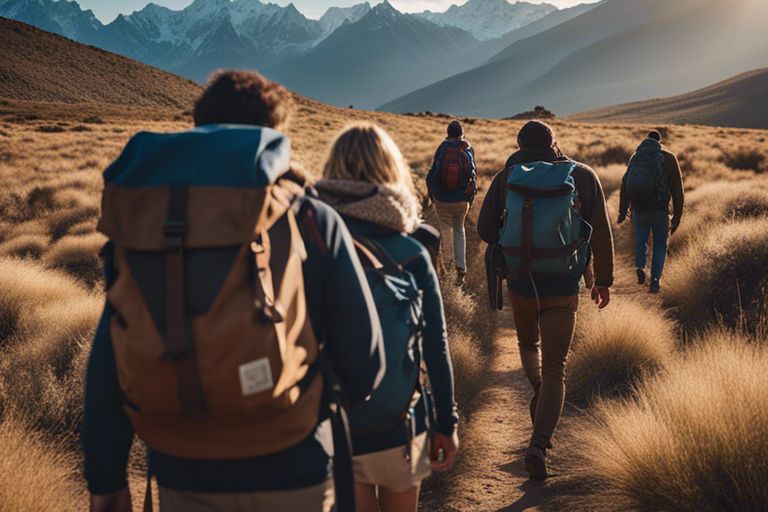This exploration researchs into the concept of whether remote expeditions embody the purest form of travel. Remote expeditions, often taking travelers off the beaten path and into uncharted territories, offer a unique and authentic experience that goes beyond the typical tourist attractions. In this post, we will discuss the allure of remote expeditions, the challenges they present, and the profound impact they can have on one’s understanding of the world.
Defining Remote Expeditions
Your exploration of remote expeditions begins with understanding what sets them apart from traditional forms of travel. These journeys take you far off the beaten path, immersing you in untouched wilderness, and testing your limits in unfamiliar environments.
Characteristics and Challenges
Expeditions into remote areas are characterized by their isolation, lack of modern amenities, and reliance on self-sufficiency. They often involve navigating rugged terrains, battling extreme weather conditions, and facing limited access to resources. The challenges encountered on these expeditions can be physical, mental, and emotional, pushing participants to their limits and demanding resilience and adaptability.
Remote Expeditions vs. Traditional Tourism
The distinction between remote expeditions and traditional tourism lies in the depth of the experience and the level of immersion in the local environment. While traditional tourism typically involves visiting popular destinations with established infrastructure and tourist facilities, remote expeditions take you off the grid and into the heart of wilderness. They offer a more authentic and raw exploration of nature, culture, and oneself.
The allure of remote expeditions lies in the opportunity to disconnect from the distractions of modern life and connect with nature on a profound level. They provide a chance to challenge oneself, gain new perspectives, and create lasting memories that go beyond the surface of typical tourist experiences.
The Lure of the Unexplored
Psychological Appeal of Remote Destinations
To many individuals, the allure of remote expeditions lies in the psychological appeal of exploring untouched and uncharted territories. The idea of venturing into the unknown triggers a sense of excitement and curiosity that can be highly rewarding. The novelty and unpredictability of remote destinations can stimulate the brain in ways that more familiar and conventional travel experiences cannot.
Exploring remote locations can also provide a sense of accomplishment and empowerment. Overcoming challenges and obstacles in isolated and rugged environments can boost self-confidence and resilience. The solitude and silence of remote expeditions can offer a unique opportunity for introspection and self-discovery, away from the distractions of modern life.
Cultural and Environmental Impact
On a cultural level, visiting remote destinations can offer travelers a deeper understanding and appreciation of different ways of life. Immersing oneself in remote communities can foster cross-cultural connections and promote mutual respect and understanding. Additionally, travelers can learn about sustainable practices and the importance of preserving fragile ecosystems from indigenous peoples who have lived in harmony with their environments for generations.
Exploring remote destinations also brings to light the environmental impact of tourism. While the untouched beauty of remote locations may be a draw for travelers, it is crucial to consider the potential negative effects of increased foot traffic on these fragile ecosystems. Responsible travel practices, such as respecting local customs and minimizing waste, are essential to preserve the integrity of these remote destinations for future generations.
Psychological fulfillment and a greater appreciation for diverse cultures and the environment are just some of the reasons why remote expeditions hold such a strong allure for avid travelers seeking authentic and transformational experiences.
Authenticity in Travel
Nowadays, travelers are seeking more authentic experiences that take them off the beaten path. Authenticity in travel is about connecting with a place, its people, and its culture in a genuine and meaningful way. Remote expeditions offer the ultimate opportunity to explore into the heart of a destination, away from tourist crowds and commercialization.
Immersive Experiences in Remote Areas
An immersive experience in a remote area allows travelers to truly immerse themselves in the local environment. Whether it’s trekking through dense jungles, camping under a starlit sky in the desert, or interacting with indigenous communities, remote expeditions offer a chance to break away from the familiar and embrace the raw beauty of nature. These experiences not only provide a sense of adventure but also a deep appreciation for the world’s diverse landscapes and cultures.
Technology plays a crucial role in modern expeditions, enhancing safety, communication, and overall expedition experience. From GPS devices and satellite phones to portable water purifiers and solar-powered equipment, technology has made it possible for travelers to venture into remote areas with greater confidence and preparedness.
The Role of Technology in Modern Expeditions
With the advancement of technology, remote expeditions have become more accessible to a wider range of travelers. Satellite imagery helps in mapping out routes, weather forecasts assist in planning, and communication devices ensure that help is always within reach. However, it is important to strike a balance between utilizing technology for safety and exploration and preserving the essence of true adventure in remote travel.
Sustainability and Ethics of Remote Travel
Not all travel experiences are created equal, especially when it comes to remote expeditions. The essence of true traveling lies not only in the exploration of untouched landscapes but also in the ethical and sustainable practices that govern our interactions with these fragile environments and the people who call them home.
Preserving the Pristine: Best Practices
Traveling to remote locations comes with a great responsibility to preserve the pristine beauty of these unspoiled landscapes. It is essential to adhere to Leave No Trace principles, minimizing our impact on the environment by practicing proper waste disposal, respecting wildlife and vegetation, and avoiding activities that can harm the ecosystem.
Engaging with Local Communities Responsibly
with the rise of remote travel, it is crucial to engage with local communities in a responsible and respectful manner. This includes supporting local businesses, respecting cultural traditions, and seeking permission before entering sacred sites or private lands. By fostering positive relationships with the people who call these remote destinations home, travelers can contribute to the preservation of local cultures and traditions.
Engaging with Local Communities Responsibly
Practices such as volunteering with local conservation projects, learning about traditional ways of life, and supporting community-based tourism initiatives can help travelers make a positive impact on the places they visit. By actively engaging with local communities, travelers not only enrich their own experience but also contribute to the long-term sustainability of remote destinations.
Summing up
Ultimately, remote expeditions embody the true essence of traveling by offering a unique opportunity to disconnect from the distractions of modern life and immerse oneself in the awe-inspiring beauty of untouched landscapes. The challenges of navigating rugged terrain and unfamiliar cultures push travelers out of their comfort zones, fostering personal growth and deepening their appreciation for the world around them. While remote expeditions may not be for everyone, those who initiate on these journeys often return with a profound sense of accomplishment and a newfound respect for the planet. In a world filled with overcrowded tourist destinations and superficial experiences, remote expeditions stand out as a truly authentic and enriching way to explore the world.




